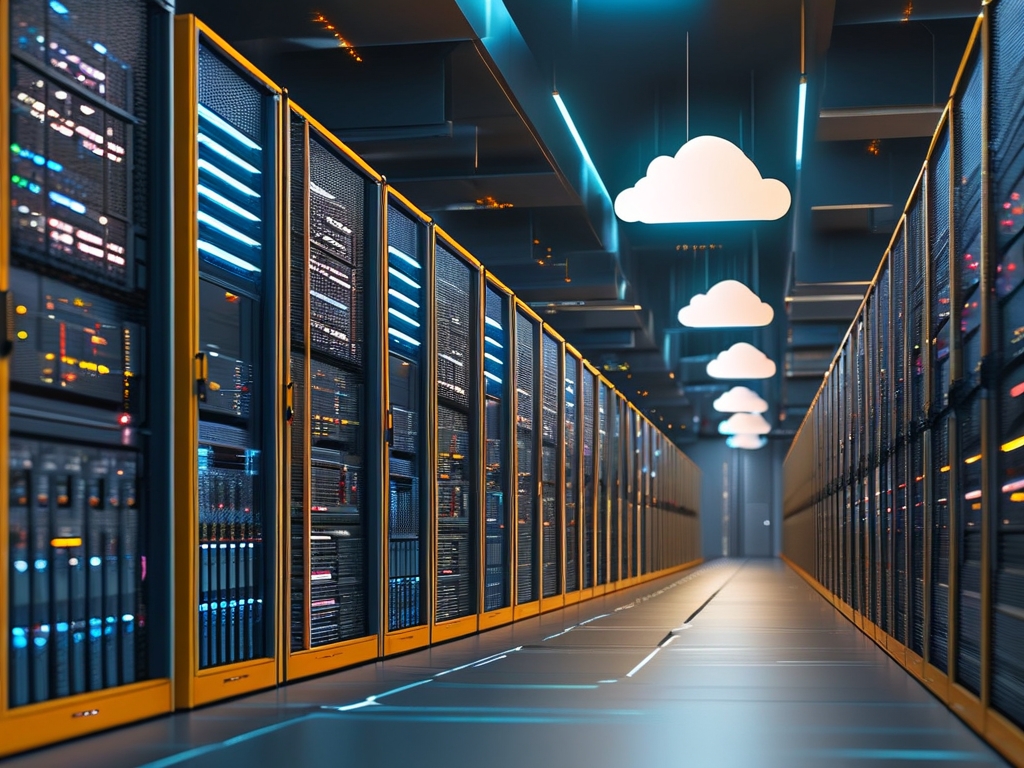The question "Is cloud computing just network storage?" reflects a common misunderstanding in today’s tech-driven world. While cloud computing and network storage are related, they are not synonymous. This article explores the distinctions between these concepts, their functionalities, and why conflating them oversimplifies the transformative potential of modern cloud technologies.

Defining Cloud Computing
Cloud computing refers to the delivery of computing services—including servers, storage, databases, networking, software, analytics, and intelligence—over the internet ("the cloud"). According to the National Institute of Standards and Technology (NIST), cloud computing is characterized by five essential features: on-demand self-service, broad network access, resource pooling, rapid elasticity, and measured service. These features enable organizations to scale resources dynamically, pay for what they use, and avoid the upfront costs of physical infrastructure.
Examples of cloud computing services include:
- Infrastructure as a Service (IaaS): Virtualized computing resources like Amazon Web Services (AWS) EC2.
- Platform as a Service (PaaS): Development environments such as Microsoft Azure.
- Software as a Service (SaaS): Applications like Google Workspace or Salesforce.
Cloud computing’s scope extends far beyond storage. It encompasses computational power, machine learning tools, disaster recovery solutions, and even serverless architectures.
Understanding Network Storage
Network storage, often called cloud storage, is a subset of cloud computing focused solely on storing and managing data online. Services like Dropbox, Google Drive, or AWS S3 allow users to upload, retrieve, and share files remotely. These platforms eliminate the need for physical hard drives and provide features like automatic backups, version control, and cross-device synchronization.
However, reducing cloud computing to storage is akin to equating a smartphone to its camera app. While storage is a critical component, it represents only one layer of a multifaceted ecosystem.
Key Differences Between Cloud Computing and Network Storage
-
Scope of Services:
Cloud computing offers a broad suite of tools, including data processing, AI/ML model training, and virtual machines. Network storage, by contrast, is limited to data hosting and retrieval. -
Resource Utilization:
Cloud computing dynamically allocates resources like CPU, RAM, and GPU based on demand. Storage services, however, focus on allocating and managing disk space. -
Use Cases:
A company using cloud computing might deploy a global e-commerce platform with auto-scaling servers, real-time analytics, and customer databases. A user relying solely on network storage might simply back up family photos or share documents. -
Technical Complexity:
Cloud computing involves orchestration tools (e.g., Kubernetes), virtualization, and distributed systems. Storage solutions prioritize encryption, redundancy, and access controls.
How Cloud Computing and Storage Interact
While distinct, cloud computing and storage are interdependent. For instance:
- A streaming service like Netflix uses cloud computing to process video encoding and user recommendations, while relying on cloud storage to host its vast media library.
- An IoT device might use cloud storage to log sensor data but depend on cloud computing to analyze trends and trigger alerts.
This synergy highlights that storage is a foundational element within the larger cloud ecosystem.
Why the Confusion Exists
The overlap between terms like "cloud storage" and "cloud computing" fuels misunderstandings. Marketing campaigns by providers often emphasize storage benefits (e.g., "unlimited space!") without clarifying the broader context. Additionally, consumers frequently interact with storage-centric services (e.g., iCloud), reinforcing the skewed perception.
The Risks of Oversimplification
Misinterpreting cloud computing as mere storage undermines its strategic value. Businesses that view the cloud only as a data repository miss opportunities to optimize operations through:
- Cost Efficiency: Scaling compute resources during peak traffic.
- Innovation: Leveraging AI APIs for customer insights.
- Resilience: Implementing multi-region failover systems.
The Future of Cloud Technologies
Emerging trends like edge computing and hybrid clouds further blur the lines between storage and computation. For example, edge devices may process data locally (computing) while syncing results to centralized servers (storage). Such advancements demand a nuanced understanding of these concepts.
Cloud computing is not equivalent to network storage; it is a comprehensive framework that includes storage as one of many components. Recognizing this distinction helps organizations and individuals harness the full potential of the cloud—from optimizing workflows to driving innovation. As technology evolves, dispelling this misconception will remain vital for informed decision-making in the digital age.









